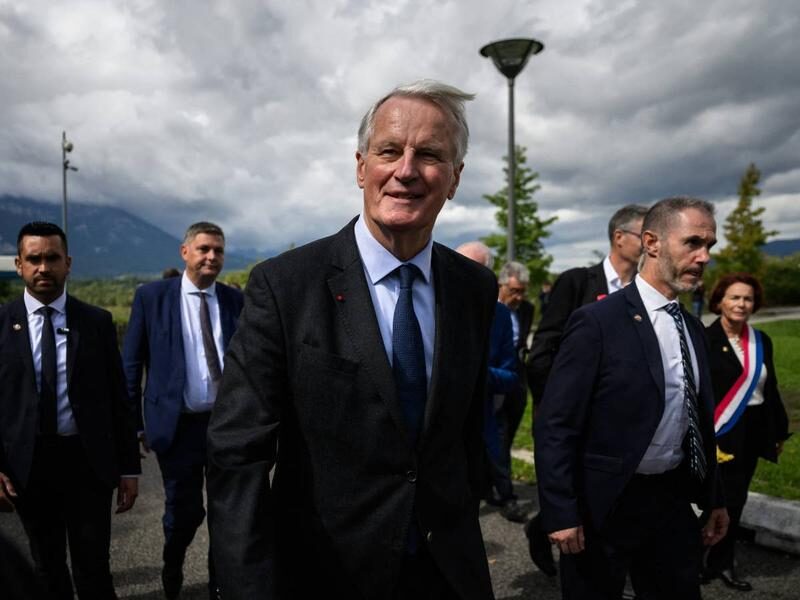BTN News: In a strategic move to maintain political control, French President Emmanuel Macron has restructured his government with a notable shift to the right, aiming to stave off a potential parliamentary crisis. Macron appointed veteran conservative Michel Barnier as prime minister, hoping to solidify a fragile majority in the deeply divided French Assembly. However, the coalition faces immediate challenges, as opposition parties, including the far-right led by Marine Le Pen, may support a motion of no confidence. This political gamble sets the stage for a tense standoff that could determine the future direction of France’s leadership as it navigates social unrest and economic strain.
Macron’s Political Gamble: Shifting Right for Stability
Facing a fractured parliament and growing opposition, Emmanuel Macron has pivoted rightward in his latest government reshuffle. His decision to appoint Michel Barnier—a seasoned politician from the conservative party, Les Républicains (LR)—as prime minister reflects Macron’s intent to build a more stable center-right coalition. The French Assembly, where no single party holds a majority, has become increasingly volatile, with the left, far-right, and centrist factions vying for control. Macron’s political move is a high-stakes attempt to avoid a complete government collapse.
Barnier, best known as the EU’s chief Brexit negotiator, is seen as a steady hand capable of managing France’s current political turbulence. His primary task will be to maintain unity within the coalition while responding to the demands of both centrist and right-wing factions.
Immediate Threat: Motion of No Confidence Looms
Despite Barnier’s appointment, the government remains on shaky ground. The left-wing coalition, known as the New Popular Front (NFP), has already declared its intention to submit a motion of no confidence against Barnier’s newly formed government. The NFP, which emerged as the largest opposition force after the June elections, argues that Macron’s government lacks legitimacy, citing his refusal to nominate their candidate, Lucie Castets, as prime minister.
Jean-Luc Mélenchon, the outspoken leader of the NFP, has criticized the government’s rightward shift, stating that it does not reflect the will of the French electorate. “If the right had won, they would have governed,” he remarked, underscoring his belief that Macron’s coalition is undemocratic. The motion of no confidence, if backed by both the far-right and the left, could spell the end for Barnier’s administration before it even begins.
Far-Right Le Pen: Kingmaker or Opponent?
Marine Le Pen, leader of the far-right National Rally, holds the key to the survival of Barnier’s government. With her party controlling a significant portion of the Assembly, Le Pen’s stance on the motion of no confidence will be pivotal. Although she has yet to fully commit, Le Pen has expressed skepticism toward Barnier’s ability to govern, describing his government as “macronism by the back door.”
However, some of Barnier’s proposed policies—such as stricter immigration controls and a focus on public safety—align with the far-right’s agenda. This overlap suggests that Le Pen could support the government if Barnier delivers on these issues in his upcoming general policy speech, scheduled for October 1. Yet, Jordan Bardella, Le Pen’s deputy, has stated that the government “has no future,” signaling potential resistance from within her own ranks.
Key Figures in Macron’s New Government
Macron’s reshuffled cabinet includes several notable figures from both his centrist alliance and the conservative Les Républicains:
- Michel Barnier – Prime Minister, tasked with uniting the government and avoiding a no-confidence vote.
- Bruno Retailleau – Minister of the Interior, a controversial figure known for his hardline stance on immigration and public order. Retailleau’s appointment has sparked backlash from the left, particularly due to his comments about ethnic tensions during the 2023 Paris riots.
- Laurence Garnier – Secretary of State for Consumer Affairs, another contentious figure due to her opposition to same-sex marriage and abortion rights.
- Sébastien Lecornu – Defense Minister, returning from Macron’s previous administration.
- Rachida Dati – Minister of Culture, a well-known politician with deep ties to the conservative political establishment.
These appointments reflect Macron’s effort to strike a balance between maintaining his centrist vision and appeasing the growing conservative faction in his coalition.
Challenges Ahead: Budget Battles and Economic Strain
Barnier’s first significant test will come with the presentation of the 2025 budget, a crucial step in stabilizing the government and addressing France’s growing fiscal challenges. France currently exceeds the European Union’s limits on public deficit and debt, a situation that Barnier described as a “very grave fiscal inheritance.” His pledge to improve public services without raising taxes on the middle class will require delicate financial maneuvering, especially as the government faces pressures from both left and right.
Conclusion: A High-Stakes Gamble for Macron
Macron’s decision to shift rightward and appoint Barnier as prime minister reflects the delicate balancing act his presidency now faces. With a divided parliament, looming economic challenges, and the threat of a no-confidence vote, the coming weeks will be crucial in determining the stability of his government. As the October deadline approaches, all eyes are on Barnier’s policy speech and whether he can unify the factions within the French Assembly or whether Macron’s government will fall to the rising opposition.


